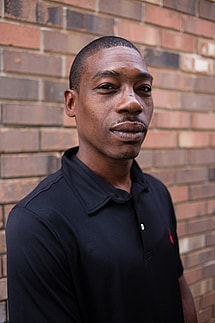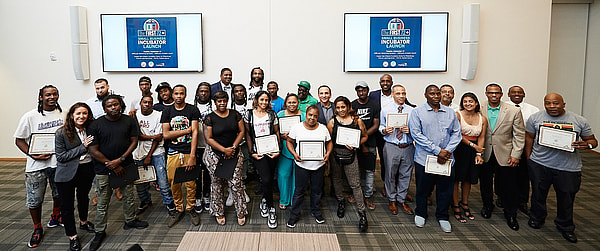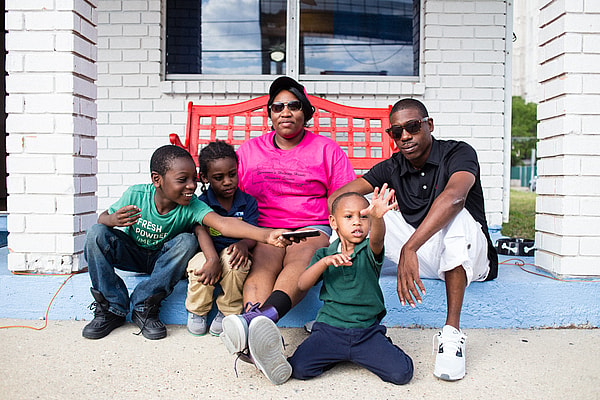In 2011, Henry Byous had just come home from the hospital with his girlfriend, who had given birth to their child, a bouncing baby boy.
But their celebration of a new life would soon be cut short.
“I brought him home from the hospital,” Byous tells TheGrio. The new father then remembers running outside to his car to retrieve something. That’s when he was greeted by police. He was arrested and charged for previously selling cannabis to an undercover police officer.
“That was the most hurtful feeling I ever went through,” he recalls.
For selling weed, the New Orleans native was sentenced to 7-10 years at the Louisiana State Penitentiary at Angola, a former slave plantation with a brutal reputation.
“It was shocking,” Byous recalls. “Ya’ll got people with gun charges that’s going home tomorrow—on probation. But here it is I got a weed charge and ya’ll just like, ‘We gonna give you seven.'”
READ MORE: Beyond the Smoke: Why decriminalizing cannabis must happen now

The harsh sentence reflects that the state of Louisiana has some of the strictest marijuana laws in the country, even as the predominantly white-owned legal marijuana industry in the U.S. brings in billions of dollars. Distribution or cultivation of marijuana can lead to 5-30 years in prison or a maximum fine of $50,000. Byous says the law doesn’t always account for the reality of trying to make a living.
“The person who probably was selling weed didn’t have a weed problem, they had a money problem,” he continues. “If you was to help that person get a great job to where he don’t have to sell weed. Then you will solve his problem on the money, because that’s basically what they are doing it for.”
“I was hustling, trying to make this money for this for this child and not paying attention to everything going on around me,” Byous remembers.
But Byous turned continued his hustle in the penitentiary, this time picking up a trade through a prison reentry program, earning an electrician certification and 15 life skills certificates.
READ MORE: Meet The Black Woman Cannabis Owner Building A ‘High’ End Weed Lounge
“You can come up here and do what’s right and go home,” Byous says of Angola Prison. “You could come up here and mess your life all the way up and never go home. And I was like, ‘Nah, I’m coming up and do what’s right and go home.'”
Byous stayed on track in prison and was released in 2013. Once he got home, he kept the momentum and started his own company, All Pro Maintenance Services, which provides electric, plumbing and air conditioning services. The company won support from a local business accelerator.

“I’m on a righteous path”
Now Byous is paying it forward, working with the First 72+ program, assisting other formerly incarcerated people to start their own businesses too, as well as find transitional housing and mental health services in the first days of their release.
The program’s small business incubator has helped launch or scale-up 22 small businesses, with great success. According to First 72+, more than 63 percent of those business owners work full time for their business.
Byous says he has had a personal hand in six of these small businesses, including repair businesses and a barber shop.
“I can’t be more proud of myself. This is me. I’m doing this now. This is my new life. Pat myself on the back. Let’s go. You know. My sons, hope [they] follow in dad’s footsteps and keep this process going.”
WATCH: Former NBA baller Al Harrington goes from the court to becoming the boss of a cannabis company

Byous says his example should demonstrate that it’s time to get rid of draconian marijuana sentencing laws and background checks that prevent incarcerated people from getting a fair shot at jobs.
“I’m on a righteous path that I need to be on,” says Byous. “Finding it was like finding peace with myself. And once I did that. I was able to see that I can help others.”
WATCH Henry Byous interview above and catch more from our “Beyond The Smoke” series below.

